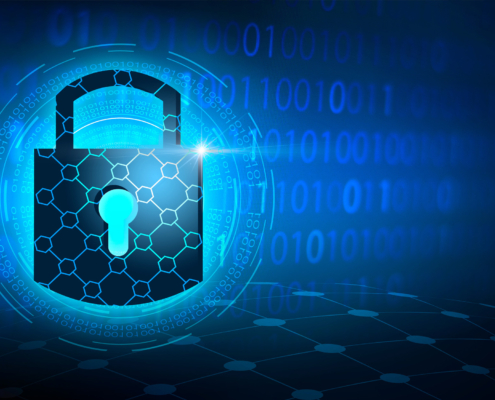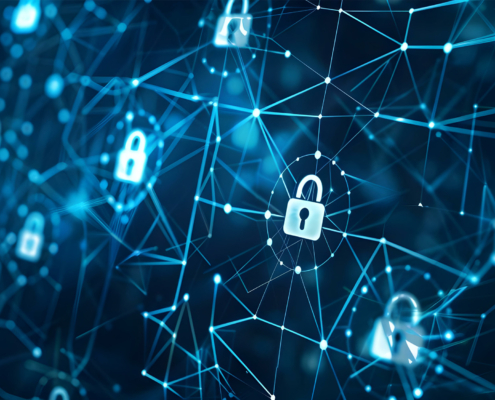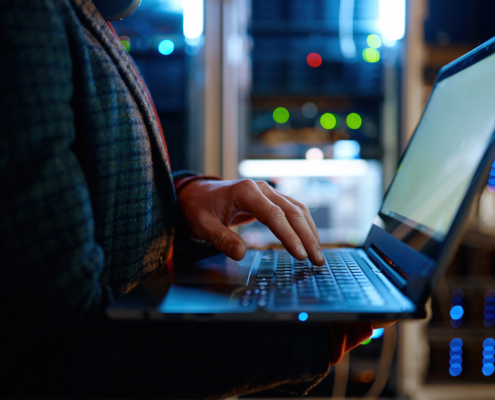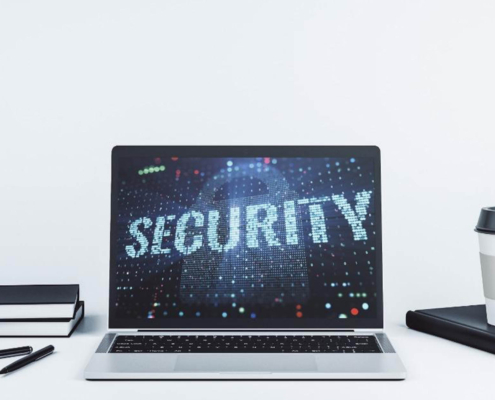Why Is MFA Important: Keeping Your Data Secure
In a digital era characterized by cybercrime and unprecedented reliance on online systems, adequate layers of security are crucial. A critical pillar of this security framework is Multi-Factor Authentication (MFA). Understanding why MFA is important is essential as the gatekeeper of personal and organizational data.
Basic Definition of MFA
Multi-factor authentication (MFA) is an authentication method that requires users to provide two or more forms of verification when logging into an account or system. The factors fall into three main categories:
- Something you know (like a password or PIN)
- Something you have (like a smartphone or security key)
- Something you are (like a fingerprint or other biometric data)
By requiring users to present multiple factors from separate categories, MFA makes it exceedingly difficult for a cybercriminal to successfully imitate your identity. While they may have gained your password through a data breach or successful phishing attempt, they shouldn’t also have access to your smartphone, and they really shouldn’t have your fingerprints!
The Functionality of MFA
Users register multiple authentication methods when setting up MFA, such as a security code-generating app, SMS text messages, or a separate security key. Upon attempting to log in or access an account, they will be prompted to provide the additional factor after submitting the first authentication factor, typically their username and password.
For example, after submitting valid login credentials, the user receives a text message with a randomized six-digit code. They must enter this code within a short timeframe to complete the login. This ensures that even with stolen login credentials, the criminal cannot gain access without having the user’s phone that receives the codes.
Adaptive MFA takes the concept further by requiring an additional factor only when necessary based on the login attempt or transaction context. Factors considered often include the user’s location, IP address, time of access, and whether the device has been used to access the account previously. No one loves authenticating more than they have to, and Conditional Access policies managed through your Microsoft account can ease the burden on legitimate users.
Why Is MFA Important?
Multi-factor authentication (MFA) has become an essential cybersecurity measure for organizations of all types and sizes. Requiring multiple factors to verify a user’s identity before granting access makes it much harder for hackers and bad actors to access sensitive systems and data. There are several vital reasons why implementing MFA is critical:
Adds a Layer of Defense that Works with Other Measures
MFA enhances security by going beyond just a username and password, pieces of information that are comparatively easy to find or force. Repositories of exposed credentials available for cheap on the dark web have especially reduced the effectiveness of passwords in securing information. Requiring a second form of identity verification creates an additional layer of security that doesn’t interfere with other security solutions you may already have in place.
This added layer makes it far more difficult for hackers to access accounts through compromised credentials. Some examples of additional factors used in MFA include:
- One-time passcodes sent via text message or email
- Verification codes from an authentication app
- Biometric data such as fingerprints or facial recognition
- Security keys (physical dongles that connect to devices)
For the small fraction of cyberattacks that could satisfy both, you could still expect your conditional access policies, your firewalls, or your endpoint detection and response tools to catch malicious action based on markers that set off their warning alarms.
Highly Effective Against the #1 Cause of Data Breaches
Recent years have seen cyberattacks become more prevalent and more damaging than ever before. They pose substantial risk to organizations of all sizes, hitting small businesses and enterprise clients alike with targeted ransomware or spear-phishing campaigns. MFA acts as both deterrent to and protection from the people running those attacks no matter which of these tactics they’re using:
- Password theft: Compromised passwords are behind 81% of data breaches, many of which are available for pennies a piece on the dark web. Even if a cybercriminal purchases an accurate username and password, unless they can also hijack a second authentication method they’ll be prevented from getting in and dealing damage.
- Phishing: Not all cybercriminals will wait for credentials to go up for sale, some will go straight to the source and go after users directly. False emails are one of the most common ways to try and trick people into providing their passwords directly into the hands of criminals. Unless the person also provides a valid MFA code alongside it within a very narrow window of time though, the threat will be avoided.
- Insider threats: Even if a rogue employee directly observes someone entering their password, or someone isn’t careful and writes a password down somewhere others can access it, they’ll still get stuck on the second factor of authentication. It’s important to ensure phones and security keys or dongles are kept safe so that they can’t be accessed by an inside threat who shares the same physical space.
- Brute force attacks: Scripts and AI have made simply testing all of the most common passwords and even the less common ones easier than ever. MFA ensures that if lucky guess number 2,000,000 is a success the criminal still gets no reward.
Implementing adaptive MFA that responds to signals such as user behavior analytics, IP addresses, locations, etc., minimizes risks. MFA is a powerful tool for managing cyber risk and preventing damaging breaches.
Auditors and Insurers are Making it a Requirement
Another reason why MFA is important is for your own bottom line. To prove that your organization is taking cybersecurity at least somewhat seriously, MFA is becoming a minimum threshold that you need to clear. Organizations that fail to do so wind up paying high costs for their necessary insurance, fall out of coverage completely, or find themselves on the wrong side of industry required compliance regulations.
If you and your IT team aren’t taking the inexpensive steps to implement an effective MFA policy, what other gaps are you leaving in your defenses for criminals to take advantage of? Everything you need should be available through your Microsoft licensing, just take some time and guidance to get yourself the rest of the way.
Looking for ways to keep your business safe from cybercrime? In addition to MFA, cybersecurity audits offer an in-depth look at your security’s weak points. Learn more about their importance in this article.
Overall Aims of Cybersecurity
Cybersecurity refers to protecting internet-connected systems and electronic infrastructure from digital attacks. Cybersecurity goals are to preserve the confidentiality and integrity of data, while still allowing for system stability and ease of data access for authorized users.
As more business infrastructure, governmental operations, and even personal activities depend on internet-connected technology, effective cybersecurity practices grow increasingly vital. Without proper safeguards it isn’t just a loss of files that’s at risk. Data breaches can expose health and legal records, financial theft can siphon millions of dollars into the wrong bank account overseas, and system outages can take hospitals or utility providers completely out of operation putting human lives at risk.
Different Types of Cyber Threats
Some of the most common cyber threats that proper security measures aim to prevent include:
- Phishing: Fraudulent emails or websites pretend to be trustworthy to trick users into providing login info, bank details, etc., that criminals use for financial gain or access. This is often just the first stage of a more sophisticated, long-term attack.
- Ransomware: Malicious software that encrypts essential data until a ransom is paid. Advanced methods encrypt not just the files, but their backups as well. The most aggressive versions don’t just threaten to delete data, but to release it to the broader internet, exposing companies to litigation, weakening their brand with betrayed clients, and revealing trade secrets to their competitors.
- Insider Threats: Data breaches and other security incidents caused intentionally or accidentally by employees or others within an organization. Not every attack comes from an outside source, and legitimate users who begin to abuse the levels of access that they are already afforded can be the most insidious threats to have to root out.
- Supply Chain Attacks: Even if you do everything to secure your own network, cybercriminals can gain access to networks and systems by compromising third-party vendors, suppliers, or partners with less rigorous security. Even large enterprises have been struck significant blows because of the laxness of more careless organizations they dealt with directly.
State-sponsored hackers, cyber terrorists, and hacktivists with political agendas also pose threats in addition to financially motivated cybercriminals. Advanced persistent threats (APTs) are long-term network infiltrations that often go undetected for extended periods.
Importance of Diverse Cybersecurity Measures
Considering the many threats from bad actors with varying motivations, proper security measures are crucial for protecting systems and data. Measures like firewalls, access controls, encrypted connections, security awareness training, and MFA all play essential roles.
Without these precautions, organizations open themselves up to potentially severe financial, legal, and reputational consequences in the event of an attack. Proper measures preserve stakeholder trust, avoid costly recovery efforts, and maintain business continuity by keeping infrastructure secure.
Why Is MFA Important to Your Business? Keeran Networks Has the Answer
Make the most of your online operations with MFA. Managing security risks can become a headache when you have multiple devices on a network. With Keeran Networks’ comprehensive multi-device management services, you can be confident that your endpoints and data are secure.













